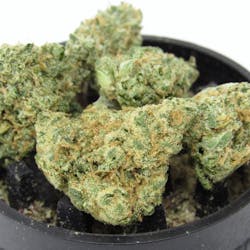Does cannabis have any ties to religion? What we found may surprise you.
Cannabis has not only been used in religious ceremonies, it has a long-standing tradition in numerous world faiths. Let’s start with the area it’s been used the longest: China.
Cannabis in Chinese Religion
Taoist shamans used cannabis in combination with ginseng to reveal truths about the future, believing the plant had the ability to cast their spirit forward in time. In Taoism, cannabis consumption was reserved for religious officials and not shared with common people, which might explain its strange exclusion from ancient texts. By 200 C.E., the Han Dynasty of Imperial China had embraced Confucianism, abandoned Taoism and, with it, cannabis.
Cannabis in Indian Religion
While spiritual Chinese cannabis consumption may have ended by 200 C.E., it was just coming into its own in India. It is said that the gods sent hemp out of compassion for the human race so that they may attain delight, lose fear, and increase sexual desires. Other Hindu stories suggest cannabis originated from a spot of nectar dropped from Heaven. More popular is a theory that both gods and demons churned the milk ocean to obtain amrita, Sanskrit for immortality, and received cannabis as a result. Whichever story you believe, there’s no doubting that cannabis holds a sacred spot in the Hindu faith. In practice, the locally favored Hindu deity was given offerings of cannabis drinks during religious festivals; community members took part as well, sharing cannabis bowls amongst one another.
Cannabis in Tibetan Religion
India and Tibet share not only a border, but also a rich tradition of religious cannabis consumption. Tibet is a historically Buddhist nation. In Mahayana Buddhism, one of the two main branches of the religion, it is said that Guatama Buddha subsisted on one hemp seed a day for six years to aid in his path to enlightenment. Buddha is sometimes depicted holding a bowl of “soma” or cannabis leaves. Buddhist practitioners would often consume cannabis to facilitate meditation or heighten awareness during religious ceremonies.
Cannabis in Ancient Greek Religion
The ancient cultures of Scythia and Assyria were known to use cannabis incense for religious ceremonies. Herodotus, a Greek historian from the fifth century B.C.E. known as the “Father of History,” wrote that the Scythians held religious ceremonies in tent-like structures where they burned hemp plants in censers on wooden tripods (see image below). Participants communally inhaled smoke vapors for ritualistic and euphoric purposes. Assyrians are believed to have used cannabis incense as early as the 9th century B.C.E., though there is not yet archaeological evidence to support this claim. It is known, however, that Assyrians used cannabis incense to ward off evil spirits. It was commonly burned during funerary rituals and to cast out wicked spirits from children’s rooms.

Scythians placed hemp-filled censers, containers for burning incense, on makeshift tripods over an open flame to produce intoxicating vapors.
Cannabis in the Old Testament
Cannabis is clearly prominent in ancient eastern religions, but there are scholars who believe that Judaic and Christian traditions used the plant as well. In 1936, Polish etymologist Sula Benet proposed a radical new interpretation of Old Testament Hebrew text: according to her, a mistranslation that occurred in the original Greek version of the Old Testament mistook the Hebrew word for cannabis, kaneh bosm, as calamus, a plant traditionally used to make fragrances. If her translation is correct, this would fundamentally change our understanding of the Old Testament. References to kaneh bosm are made in Exodus, Song of Songs, Isaiah, Jeremiah, and Ezekial. In Exodus, God commanded Moses to make a holy oil consisting of myrrh, sweet cinnamon, kaneh bosm, and cassia.
Cannabis in Jamaican Religion
Our research concluded in the modern western world, focused primarily on the island nation of Jamaica. Made popular in the U.S. first by Bob Marley and reintroduced by Snoop Lion (the artist formerly known as Snoop Dogg), the Rastafarian movement focuses on Jah, or God, and involves the spiritual use of cannabis and rejection of materialism and oppression. Rastafarians’ use of marijuana was subject to scrutiny in the 20th century. Drawn-out legal proceedings culminated in the 1993 Religious Freedom and Restoration Act which stated that the consumption of cannabis and other substances is legal under U.S. law for spiritual and religious purposes. That’s right, mon!
So what have we learned? Cannabis has not only been around a very, very long time, it’s been an important part of world religious traditions for thousands of years. So this year when you’re taking part in your own holiday traditions, be sure to light one up for the religious cannabis consumers of times past. If you’re lucky, your spirit may just commune with the Taoists of old.





